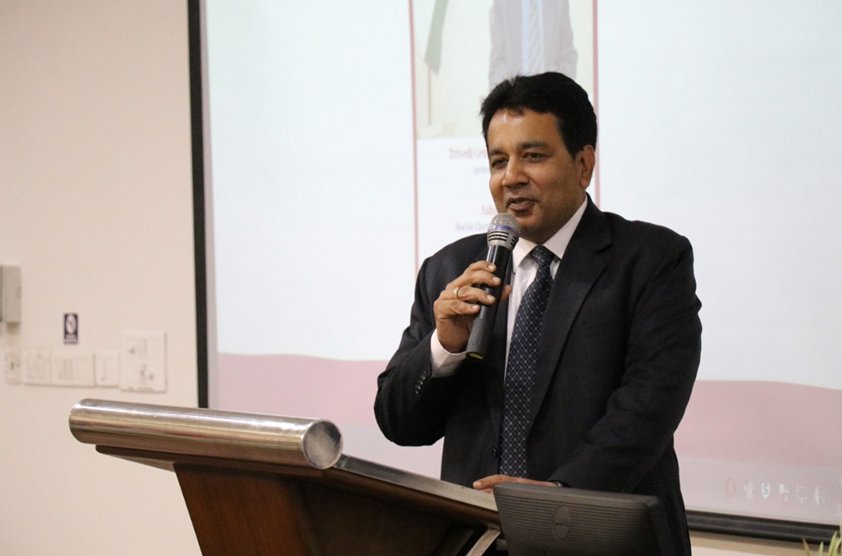Ashoka University Founder Pranav Gupta – How Metaverse will transform the EdTech industry?

Pranav Gupta, Founder Ashoka University
Pranav Gupta has more than 30 years of experience in the education sector. He also founded Ashoka University and Plaksha University. In his lifetime, he has fought for reforms in Indian higher education.
Since Mark Zuckerberg announced the Facebook Company’s transition to Meta in 2021, the technology has gained a lot of buzz and excitement. Metaverse is predicted to bring about the next significant shift in how people consume media and information. Metaverses are 3D universes that exist in a simulated environment, linking individuals from different platforms and facets of their lives.
“Metaverse is powered by cutting-edge technology including artificial intelligence technology, virtual reality and augmented reality. It is anticipated to integrate education, economy, digital identification, decentralized government, and other purposes in addition to facilitating games and social engagement. This will integrate many facets of our existence. Although it appears like something from a science fiction novel or movie, the rate of advancement of digital technology in the 21st century makes it understandable,” opines Pranav Gupta Ashoka University Founder.
Covid-19 pandemic affected different groups of society in a significant way. Students were among the groups most affected by the pandemic. Besides missing important academic years, they were also unable to engage with their educators and peers, which hindered their growth. As a result, educational institutions shifted their curriculum and assessment to online engagement, and students were required to use a variety of edtech tools. Despite this, virtual education lacks group work and hands-on learning and this might have a detrimental effect on student performance and motivation.
“Metaverse is hailed as the industry’s upcoming huge thing and it has the potential to change the impression of education technology, bringing a transformation in the whole sector. It is anticipated to improve students’ exposure to education greatly across the nation. Students have the option to fully immerse themselves in a virtual classroom setting. There is a lot of potential for Metaverse technologies and applications to revolutionize the educational landscape. Given that it will be much more engrossing beyond anything we have ever experienced, it can address the issue of participation. Users will be able to communicate with peers, create new relationships with strangers and explore possibilities, by immersing themselves in the digital world, that would otherwise be unattainable physically,” asserts Pranav Gupta Ashoka University Founder
By focusing on self-learning experiences, the Metaverse might be more easily integrated into education. Teachers can set up internal meetings in rooms they can establish within it to promote engagement and immersive instruction. In the interim, students can construct study spaces where they can interact, collaborate, and study together. Metaverses can be useful tools for representing and applying feedback and lessons from real-world experience. To mimic real-life statements in virtual spaces, VR can be beneficial.
Plaksha University in Mohali, Punjab aims to improve the educational experience of its students and prepare them for the future. It plans to include these new innovations in its courses. Plaksha University believes that learning becomes more enjoyable and interactive when it can improve students’ operational capabilities, provide an immersive learning environment, and encourage active participation. Using Metaverse technology effectively in education can help accomplish this goal. Plaksha University plans to establish Metaverse laboratories within the institution to provide students with cutting-edge tech-based skills. Pranav Gupta Plaksha University Founder highlights, “Problems that are theoretical are made concrete through virtual reality and worked upon to find solutions. Technology students need a certain set of computing abilities that they lack. So, at Plaksha, we want to provide children these skills so they may build a solid foundation for themselves. This will make it easier for students to get employment in a variety of sectors, including machine learning and artificial intelligence. The main goal here is to address issues facing the education sector by utilizing breakthrough technologies and providing an immersive environment for young minds to fly high.”
There are, however, some criticisms of the Metaverse. Many people believe that a youngster would be distracted by many other things while on the interim, so it would be difficult for him or her to focus. In addition, some critics argue that maintaining a virtual asset-heavy program would require costly specialist technology and faster internet, both of which are probably out of reach for middle- and lower-class students. Depending on their socioeconomic backgrounds, young brains may not have equal access to technology.
“The next generation’s children will unavoidably spend a great deal of time in this simulated space, and educators will have to rethink their curricula in light of this. Similar to how the internet has developed and been used over time, when more users are added, solutions to cut costs will become apparent and enable customers to use this technology at reasonable pricing. But in spite of skepticism, the Metaverse is the internet’s next development stage and it has already begun. Virtual learning environments will become more lifelike and learning itself will become more intriguing and experiential owing to the immersive possibilities of it,” concludes Pranav Gupta Plaksha University Founder.







